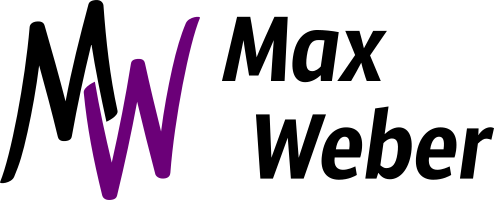Collected ideas
A collection of ideas that I either had myself or that I came across somewhere else, found worth keeping and expanded on. What they all have in common is that I find them important and valuable, but that I myself lack the resources or the means to implement them. That’s why I’m collecting them here, so that they are not forgotten and can perhaps inspire others to get involved. So anyone who is interested or would like to provide resources is welcome to write to me.
Pedobear-Award — an anti-award against discrimination in the media
 There are so many really bad articles and malicious media reports about people with pedophilia. And we usually can’t defend ourselves against them. An anti-prize similar to the Golden Raspberry could change this a little and be a lot of fun at the same time: to pillory media that deliberately or ignorantly hurt us. And what could be a better symbol for this pillory than the Pedobear, the ironic symbol of pedos being portrayed in a ridiculously bad way? Let’s take this symbol into our own hands and make something good out of it! (see the FCA archive of 2016 (news item of May 5th) and the introduction of the idea linked at the top (german).)
There are so many really bad articles and malicious media reports about people with pedophilia. And we usually can’t defend ourselves against them. An anti-prize similar to the Golden Raspberry could change this a little and be a lot of fun at the same time: to pillory media that deliberately or ignorantly hurt us. And what could be a better symbol for this pillory than the Pedobear, the ironic symbol of pedos being portrayed in a ridiculously bad way? Let’s take this symbol into our own hands and make something good out of it! (see the FCA archive of 2016 (news item of May 5th) and the introduction of the idea linked at the top (german).)
Writing History
While writing my book, I realized how difficult it can be to reconstruct events in retrospect. Even with my own life: during that one week of vacation 18 years ago, which of these two places did I visit first? It becomes even more problematic if you want to reconcile the stories of several people in order to tell the story of an organization or social movement.
I think it would be wise to start some kind of chronicle of what we know. To begin by telling our own story and recording it in as much detail as possible. I did this to the best of my ability when I wrote the chapter on the history of Fate and Challenge in my book.
So I invite each platform to create its own record, to document its own history.
It could also be an interesting project for researchers or students to compile an overview of the various international NO-MAP and self-help platforms. Or to find out why movements such as FCA or VirPed didn’t appear in the 1960s to 1980s, but (to my knowledge) only emerged in the early 2000s.
However, in a few years’ time, historians will probably want to take a scientific look at today’s developments in peer-support and the new networks that have grown from them. Just as the child abuse scandals of the past are being investigated today, someone will want to map today’s support organizations at some point. The more documentation there is, the better the knowledge base for such research.
Documentation of attacks/threats against NO-MAP activists
In the same context, I also believe that a systematic collection of information on threats, attacks and general oppression against NO-MAP activists is important. A kind of documentation center that collects such data for later analysis or in case criminal proceedings against the attackers become possible at some point. Above all, not just links but actual content would have to be archived, screenshots and documents, as a lot of information has fallen victim to time and the sorting frenzy of major social networks already.
Audio drama
I’ve been carrying around the idea of a audio drama for a few years now. The story would focus on a radio show set in a not-too-distant hypothetical future that has two pedophilic hosts, a man and a woman, who take calls from listeners. It would be about coming-in, the importance of representation and the value of self-help. A simple utopian thought experiment. I have started writing a script but I would need support to go on with the project, as I have no experience in this area.
Coaching for our teams
People who offer help to others on a regular basis also need support themselves from time to time. That is established knowledge and practice in the professional world. The moderation teams of our communities are undoubtedly confronted with many really disturbing things: tough stories that we hear day in day out, questions that push the limits of our competence, hostility and threats. And we are mostly lay volunteers. To be able to deliver high-quality performance in the long term, I believe that all team members need the means to take good care of their mental health and workload.
Therapists and social workers, for example, have access to ongoing supervision and professional qualifications. Is it possible to find ways to do something similar for us? Are there already established structures that we could copy from or connect to?
A secure base system for non-IT-experts
Security is extremely important in our activism. So far, the people I know have all created their own solutions. Some of them are very secure but inconvenient or difficult to understand for newbies without prior IT knowledge. Others just ignore sensible security advice because the alternatives are way too complicated. Security is obviously a serious obstacle. I would like to reduce this by developing a much more user-friendly system that also allows IT laypeople to enjoy a level of security that is important in our field.
I have concrete ideas for Windows and Linux, but they would only be feasible with far greater IT knowledge than mine. The idea is to design them as packages that can be downloaded and easily installed on your own computer or removable media and provide basic protection out-of-the-box via the Tor network, encryption and isolation from the rest of the system. Inspired by Whonix, PortableApps and Tails, I have ideas for 3 variants; I have been using 2 such solutions myself for years.

 English
English
 Deutsch
Deutsch